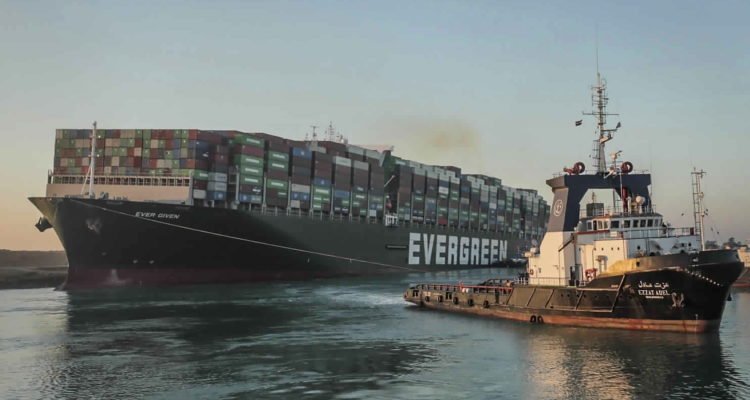Could Israel benefit from a stuck container ship in the Suez Canal?
Israel’s Globes reports on Sunday that Egypt’s embarrassing escapade with the Ever Given, the Empire State Building-sized container ship that ran aground on March 23, could end up as a “major catalyst” for Israel to pursue “Suez Canal bypass” projects, which have been on the back burner due to their high cost.
One recently in the news is the project to transport oil from the United Arab Emirates to Europe via an old pipeline once used to transport Iranian oil from Eilat to Ashkelon. The pipeline is owned and operated by the Eilat Ashkelon Pipeline Company (EAPC).
Eilat is on the Red Sea and Ashkelon is on the Mediterranean. Oil tankers would offload in Eilat, the oil would be transferred via the pipeline to Ashkelon and loaded back onto tankers that would transport the oil to Europe. The Suez Canal would be cut out of the picture.
Eilat Oil Port can accommodate tankers with up to 350,000 dead weight tonnage (dwt) and the Ashkelon Oil Port up to 250,000 dwt.
Globes reports that while a contract was signed in Dubai regarding the project in October 2020, shortly after the Abraham Accords, no money has been allocated yet.
According to Reuters, “A source familiar with the deal said that, if finalized, it could be worth $700-$800 million over several years, and that supplies could start soon – at the beginning of 2022.”
Other projects include the construction of rail lines from Gulf States to the Mediterranean. One would pass through Jordan and connect up with the Saudi railway system. Another idea is a railway between the Mediterranean port of Ashdod and Eilat.
All project costs are estimated in the billions of dollars.
Israel isn’t the only country looking at ways to capture business from the Suez Canal. One avenue is courtesy of global warming, which has made the Arctic a viable passageway.
“The Arctic is now open for business year-round after a large commercial ship sailed the Northern Sea Route from Jiangsu, China, to a Russian gas plant on the Arctic coast, for the first time ever during the month of February, when winter temperatures normally make the icy waterway impassable,” Vox reported in February.
And China has a direct freight railway running from Yiwu to London, a distance of 7,500 miles. The route was opened in January 2017.
(World Israel News).
